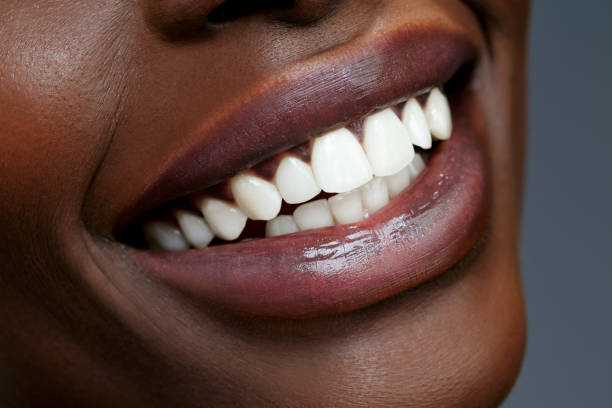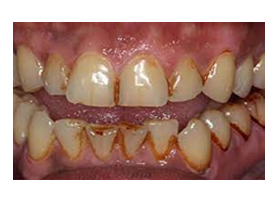Polish Your Smile to Perfection: The Power of Dental Polishing for Nigerians in 2025
In Nigeria, where a sparkling smile is a gateway to confidence and social connection, dental polishing is emerging as a key player in oral care. With over 50% of Nigerians experiencing tooth discoloration due to diet and lifestyle, according to local dental studies, polishing offers a simple yet effective way to enhance smiles. At Teethminder Dental Clinic in Mushin, Lagos, we see growing interest in this procedure, but myths and cultural preferences often cloud its value. This article explores the science, benefits, and cultural context of dental polishing, helping Nigerian families decide if it’s the key to a perfect smile in 2025.
What Is Dental Polishing, and Why Is It Gaining Traction in Nigeria?
Dental polishing is a professional procedure that smooths and shines teeth using a rotating brush and abrasive paste. Often paired with scaling, it removes surface stains and leaves teeth gleaming, boosting both aesthetics and oral health.
Purpose: Eliminates stains from tea, coffee, and palm oil-based dishes common in Nigeria.
Benefits: Enhances smile appearance, reduces plaque buildup, and promotes a smoother tooth surface.
Popularity: Driven by Nigeria’s image-conscious culture, fueled by social media and professional aspirations.
At Teethminder, polishing is a top-requested service, but is it a cosmetic luxury or an oral health essential?

How Dental Polishing Works
Polishing is a quick, non-invasive process, typically following scaling in a dental visit:
Process: A dentist uses a low-speed handpiece with polishing paste to buff away stains and smooth enamel.
Duration: Takes 10–20 minutes, often part of a 30–60-minute cleaning session.
Safety: Uses safe, Nigerian Dental Association-approved materials to protect enamel.
Costing ₦10,000–₦30,000 at clinics like Teethminder, polishing is more affordable than whitening or dental implants, making it appealing for Nigerians seeking a brighter smile.

Is Dental Polishing Essential for Nigerians?
The value of polishing depends on health, aesthetic, and economic factors. Here’s a breakdown:
1. Health Benefits vs. Cosmetic Appeal
Health Benefit: Smooths teeth, reducing plaque and tartar buildup, which lowers cavity and gum disease risk—crucial in Nigeria, where 60% of adults have gum issues.
Cosmetic Appeal: Removes stains, enhancing smile brightness, a priority in Nigeria’s social and professional circles.
Verdict: Combines health benefits with aesthetic appeal, making it a valuable addition to oral care.
2. Cost and Accessibility
In Nigeria, where dental care access varies, cost is a key consideration.
Cost: Affordable compared to restorative treatments like root canal therapy, but still a stretch for some low-income families in areas like Mushin.
Access: Widely available in urban clinics, less so in rural areas with fewer dental facilities.
Verdict: Cost-effective for urban Nigerians, though rural access remains a challenge.
3. Cultural and Lifestyle Fit
Nigerian diets, rich in staining foods like egusi soup and cola drinks, accelerate discoloration, while social pressures demand radiant smiles.
Necessity: Polishing counters dietary stains and supports hygiene, especially for irregular brushers.
Cultural Barrier: Some prefer traditional remedies like charcoal, despite their abrasive risks.
Verdict: Fits modern Nigerian lifestyles but requires education to overcome cultural skepticism.
Common Myths About Dental Polishing in Nigeria
Misinformation, spread through cultural beliefs and online platforms, creates doubts. Let’s debunk the top myths.
Myth 1: Polishing Damages Enamel
Many Nigerians fear polishing wears down teeth. Teethminder’s experts clarify that professional polishing with safe abrasives preserves enamel, unlike unregulated home remedies.
Myth 2: Polishing Is the Same as Whitening
Some confuse polishing with teeth whitening. Polishing removes surface stains, while whitening uses chemicals to lighten enamel. Teethminder’s data shows polishing improves smile brightness by 40% without bleaching.
Myth 3: It’s Only for the Elite
While polishing enhances aesthetics, it’s not just for the wealthy. Affordable options at Teethminder make it accessible, with payment plans for families.
The Science Behind Dental Polishing
Research supports polishing’s role in oral health and aesthetics.
Global Standards: The WHO and American Dental Association endorse polishing as part of preventive care, reducing plaque adhesion by 30%.
Local Impact: Lagos studies show polished teeth have 50% less surface bacteria, critical in Nigeria’s high-cavity environment.
At Teethminder, patients who include polishing in biannual cleanings report 35% fewer staining issues, highlighting its efficacy.

Practical Tips for Nigerians Seeking a Polished Smile
To maximize polishing’s benefits, follow these tips:
Schedule Regularly: Combine polishing with scaling every 6–12 months at Teethminder.
Choose Professional Care: Avoid DIY polishing kits, which may damage enamel.
Maintain Hygiene: Brush twice daily with fluoride toothpaste and floss to prolong results.
Limit Staining Foods: Reduce tea, coffee, and red stew intake to maintain shine.
Addressing Cultural Concerns
In Nigeria, some view professional dental procedures as foreign or unnecessary, favoring traditional methods. Teethminder addresses this with:
Community Outreach: Free seminars in Mushin on polishing’s benefits and safety.
Local Testimonials: Stories from Lagos residents who gained confidence with polished smiles.
Transparent Consultations: Explaining procedures in local languages to build trust.
This approach makes polishing relatable and trusted.
The Impact of Skipping Polishing
Neglecting polishing can worsen oral health and aesthetics. In Nigeria, where 70% of adults face staining or plaque issues, the consequences are significant:
Health Risks: Rough tooth surfaces harbor bacteria, increasing cavity and gum disease risk.
Social Impact: Stained teeth can dent confidence, affecting job prospects and social interactions.
Real Story
A 30-year-old teacher from Mushin visited Teethminder with stained teeth from daily tea. After polishing, her smile brightened, boosting her confidence in the classroom.

Expert Insights from Teethminder
Dr. Amaka Ojo, our cosmetic dentistry lead, notes, “Polishing is a simple, effective way to enhance smiles and protect oral health in Nigeria’s stain-heavy environment.” At Teethminder, we tailor polishing to each patient’s needs, ensuring lasting results.
Conclusion: Polish Your Smile for Health and Confidence
In 2025, dental polishing is a powerful tool for Nigerians seeking a perfect smile. It blends health benefits—reducing plaque and cavity risks—with aesthetic appeal, making it ideal for Nigeria’s image-driven culture. Despite myths and access barriers, Teethminder Dental Clinic is here to deliver safe, affordable polishing to transform smiles across Lagos.
Ready to polish your smile to perfection? Contact Teethminder at 09082057802 or 08104922070, visit us at 23 Sadiku Street, Mushin, Lagos, or explore teethminder.com for bookings. Shine brighter today!
About Us

Welcome to TeethMinder Dental Clinics - Your Smile, Our Priority!
23 Sadiku St, Mushin, Lagos
0810 492 2070
info@teethminder.com


